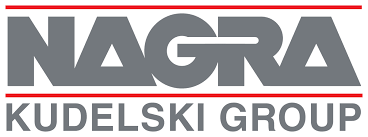Foreign company start-up
There are various possibilities for a foreign company or individual to start a business in Spain. The most common forms of establishment include creating a Representative Office, Branches, and Subsidiaries.
These legal structures are fundamental for the correct start-up and development of a business in Spain, and QualityConta can assist you throughout the process.
Forms of Establishment for Foreigners Starting a Business in Spain
In addition to the aforementioned structures, there are other options, such as signing distribution and cooperation agreements with Spanish companies. For example, Temporary Joint Ventures (UTE) and Economic Interest Groupings (AIE) provide flexible ways for foreign companies to cooperate with local businesses.
These alternatives are often an efficient strategy for starting a business in Spain as a foreigner, allowing foreign entities to benefit from established networks.
Agents, Commission Agents, and Franchises: Alternatives for Foreigners Starting a Business
Another way of running a business in Spain is through agents or commission agents. This approach enables companies to have a commercial presence without the need to establish a legal entity. Additionally, franchising is a viable option for those wishing to expand their brand with local support.
Legal and Fiscal Requirements for Starting a Business in Spain
Each of the mentioned options implies different degrees of capacity and autonomy, as well as specific legal and business requirements.
Tax treatment, accounting obligations, and technical aspects vary depending on the legal form selected. If you plan to start a business in Spain as a foreigner, it’s essential to understand the necessary steps for incorporating either a branch or a subsidiary.
Obtaining a tax ID for foreign companies is also crucial to comply with local regulations.
Expert Support for Setting Up Subsidiaries in Spain
We are experts in setting up subsidiaries and will assist you with every aspect of the process. Our extensive experience ensures that all necessary formalities are completed efficiently. Here’s how we can help you get started:
- Parent Company Agreement.
- Application for the Subsidiary’s name.
- Opening a bank deposit account.
- Signing the public deed of incorporation and drafting Articles of Association.
- Obtaining a provisional Tax Identification Number (NIF).
- Settlement of Transfer Tax and Stamp Duty.
- Registration with the Commercial Register.
- Applying for a definitive Tax Identification Number.
- Declaration in the Foreign Investment Register.
- Bookkeeping and Accounts Depository.
- Managing taxation and ensuring compliance with Double Taxation Agreements.












